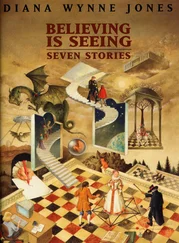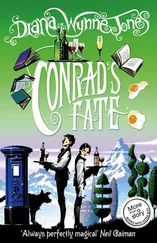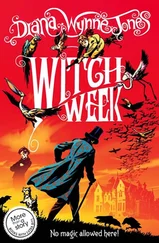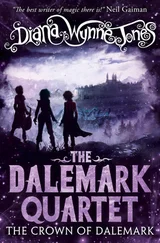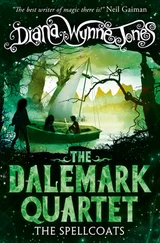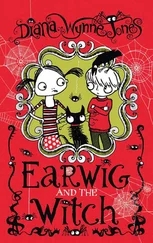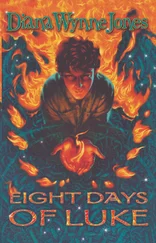Diana Jones - Drowned Ammet
Здесь есть возможность читать онлайн «Diana Jones - Drowned Ammet» — ознакомительный отрывок электронной книги совершенно бесплатно, а после прочтения отрывка купить полную версию. В некоторых случаях можно слушать аудио, скачать через торрент в формате fb2 и присутствует краткое содержание. Год выпуска: 2006, Жанр: Фэнтези, на английском языке. Описание произведения, (предисловие) а так же отзывы посетителей доступны на портале библиотеки ЛибКат.
- Название:Drowned Ammet
- Автор:
- Жанр:
- Год:2006
- ISBN:нет данных
- Рейтинг книги:3 / 5. Голосов: 1
-
Избранное:Добавить в избранное
- Отзывы:
-
Ваша оценка:
- 60
- 1
- 2
- 3
- 4
- 5
Drowned Ammet: краткое содержание, описание и аннотация
Предлагаем к чтению аннотацию, описание, краткое содержание или предисловие (зависит от того, что написал сам автор книги «Drowned Ammet»). Если вы не нашли необходимую информацию о книге — напишите в комментариях, мы постараемся отыскать её.
To avenge his father, Mitt joins in a plot to assassinate the tyrannical Earl Hadd, but when the plot goes wildly awry, he finds himself fleeing on a storm-tossed sea, alone among his enemies—except for the figure of Drowned Ammet…
Drowned Ammet — читать онлайн ознакомительный отрывок
Ниже представлен текст книги, разбитый по страницам. Система сохранения места последней прочитанной страницы, позволяет с удобством читать онлайн бесплатно книгу «Drowned Ammet», без необходимости каждый раз заново искать на чём Вы остановились. Поставьте закладку, и сможете в любой момент перейти на страницу, на которой закончили чтение.
Интервал:
Закладка:
After Mitt had brought the bucket back to the door of their room, he was all on his own once Milda had found work. He had nothing to do but keep out of the way of the other children. He hated them most of all. They were town children, shrewd, nimble, and knowing. They made rings around Mitt. They jeered at him for not understanding town ways. They made him look a fool, then ran away laughing.
Mitt hid from them, usually, in the dark holes and corners of the house or the waterfront. But one day he felt he had had enough of that and ran away instead, up the hill from the harbor, into the better part of the town. Here, to his surprise, the streets were cleaner, and became wider and cleaner still as he went upward. The air smelled almost fresh. There was a tang in it of the sea, and an autumn smell from the Flate. Better still, most of the houses were painted, and unlike the tenement, the paint was fresh and bright, and Mitt could see what the pictures were about. He walked slowly, looking at trees and fruit, red swirls and blue flowers, until he came to a particularly fine tall house, where the painting was in gold as well as other colors. On one gable, a stiff sort of lady in a green dress held out a very purple bunch of grapes to a stiff man on the other gable, whose hair seemed to be solid gold. Mitt much admired them. They reminded him a little of the figureheads on the fronts of the big ships. And perhaps because of the fresh air smell, they made him think of his perfect land.
He was standing lost in admiration and daydream when a servant of the merchant who owned the house came out with a stick and told him to be off. He called Mitt a guttersnipe and said he had no business to be there. Mitt ran away, terrified. As he went, he looked back and upward. And there, on the very top of the hill, was the Earl’s palace, larger, whiter, brighter, and with more gold paint than any other house in Holand. Mitt felt it was squashing him. He felt like a pip in a cider press.
That was the last time for many years that Mitt remembered his perfect land. Holand quashed it out of his mind entirely and left him simply bewildered.
When Mitt’s birthday came, a few days later, and with it the Sea Festival, that was bewildering, too. Everyone had a holiday, so there were more people about than ever. Mitt watched the Festival procession, hoisted onto the shoulders of a kindly man called Canden, who seemed to be a friend of his father’s. Down the street came a boiling and a bubbling of brightly clothed people. There was terrific shouting and yelling, and ribbons, fruit, and flowers on everyone. Some had silly hats. Images went by on sticks—heads of cows and horses, with hats and ribbons on, too. Big boys went tearing in and out of the procession, shouting and swirling wooden rattles. It was noise, noise, noise. Every so often came a group of people playing the traditional tune on traditional instruments. There were pipes called scarnels, which sounded just like their name, and triangular stringed things you played with a horsehair bow. They were cruddles, and they sounded just like their name, too. And the groups of musicians were so far apart from one another that it was only by accident that they played the same part of the tune as the rest. Then, drub, drub, drub, came people banging at horsehair drums and drowning out even the scarnels. In the midst of it, Mitt glimpsed a straw dummy, fantastically looped with cherry-colored ribbons, riding along in some body’s arms.
“Look,” said the kindly Canden. “There’s Poor Old Ammet. That’s Earl Hadd carrying him.”
“What’s he going to do with him?” Mitt asked anxiously. He had never heard of Earl Hadd doing anything good with anything.
“Throw him in the harbor, of course. For luck,” explained Canden.
Mitt was horrified. Earl Hadd must be quite heartless. He thought of Poor Old Ammet being tipped into the harbor just like the bucket of muck Mitt tipped in daily, and Poor Old Ammet sinking, soaking, drowning, his ribbons getting spoiled. “Doesn’t he float?” he asked tensely.
“Not too often,” Canden said, quite unaware of Mitt’s state of mind. “Mostly he falls to pieces and sinks in the harbor or just outside it.”
“He doesn’t!” Mitt said frantically.
There was another friend of Mitt’s father’s standing beside Canden. He was called Dideo, and his face was a mass of tiny lines. Mitt thought Dideo’s eyes looked like two shiny fish caught in the net of his skin. Dideo said, “He doesn’t always fall to bits—Old Ammet. If the tide’s right, he goes out on the tide in one piece. Or they say he does. Floats for miles. And those in a boat that can find him and pick him out have a lucky boat ever after, they say.”
If anything, Mitt found it even more distressing to think of Poor Old Ammet floating, floating, all on his own out to sea. He tried to change the subject. “Who are those boys with rattles?”
Canden glanced at the procession, where boys in red and yellow trousers were having great fun whirling their rattles under the noses of cruddle players. “Boys from the Palace. All them in the procession come from the Palace,” he told Mitt, and turned to Dideo again. “I’ve never seen Old Ammet float. He goes down almost as quick as Libby Beer.”
“Would they let me run about with a rattle?” Mitt interrupted desperately.
“No. You’re born a nobody,” said Dideo. “He does float,” he said to Canden. “You’ve not been in Holand long enough to know, but he was picked up once, a good ten miles out, by the old Sevenfold, and I heard every man on that ship made a fortune afterward. That was the only time I ever knew it happen, though,” he added regretfully. “I was about Mitt’s age at the time.” Here he looked up at Mitt and, finding him inexplicably white and tearful, nudged Canden.
Canden took Mitt down and peered at his face. “What’s the matter? Would you like an Ammet of your own?”
“ No! ” said Mitt.
Nevertheless, he arrived in front of a stall where dozens of tiny straw Ammets were for sale. With them came another friend of Mitt’s father’s, a man with a dour, blank face, called Siriol, who stood by without saying anything while Canden and Dideo bent over Mitt, doing their best to please him. Would Mitt have this Ammet here? Or how about this one with blue ribbons? And when Mitt firmly refused to have anything to do with Poor Old Ammet in any color ribbons, Canden and Dideo tried to buy him a wax model of Libby Beer instead. But real and enticing though the wax fruit looked, Mitt did not want Libby either. She was thrown into the sea just like Poor Old Ammet. He burst into tears and pushed her away.
“But they’re lucky!” Canden said, quite mystified.
Dour-faced Siriol picked up one of the toffee apples from the other end of the stall and stuffed it into Mitt’s damp fist. “There,” he said. “That’ll please you best, you see.” He was quite right. Mitt forgot his distress, somewhat, in the difficulty of getting his teeth through the toffee into the apple underneath.
There was some mystery about these friends of Mitt’s father’s. Mitt knew his mother did not care for them. He heard her objecting to them every night when his parents quarreled. Her objections seemed to mount steadily through that winter, until around the new year, when Mitt heard her say, “Oh, I give in! Only don’t blame me when the soldiers come for you!”
It must have been about a week after Milda said this, in the very heart of winter, when Mitt woke up suddenly in the middle of the night. A red light was flickering on the ceiling. He could hear crackling and distant shouting, and smell smoke. One of the big warehouses on the waterfront was clearly on fire. Mitt could see it, when he raised himself on one elbow, blazing into the sky and down into the dark water of the harbor. But what had woken Mitt was not that. It was the slow shuffling outside the door of the room. The sound made Mitt’s back prickle. He could hear Milda trying to light the lamp, whimpering with haste and annoyance because she could not get the wick to burn. Then the light came at last, and Mitt saw his father was not in the room. Milda ran through the room with the lamp, making lurching shadows as she ran, and tore open the door.
Читать дальшеИнтервал:
Закладка:
Похожие книги на «Drowned Ammet»
Представляем Вашему вниманию похожие книги на «Drowned Ammet» списком для выбора. Мы отобрали схожую по названию и смыслу литературу в надежде предоставить читателям больше вариантов отыскать новые, интересные, ещё непрочитанные произведения.
Обсуждение, отзывы о книге «Drowned Ammet» и просто собственные мнения читателей. Оставьте ваши комментарии, напишите, что Вы думаете о произведении, его смысле или главных героях. Укажите что конкретно понравилось, а что нет, и почему Вы так считаете.

